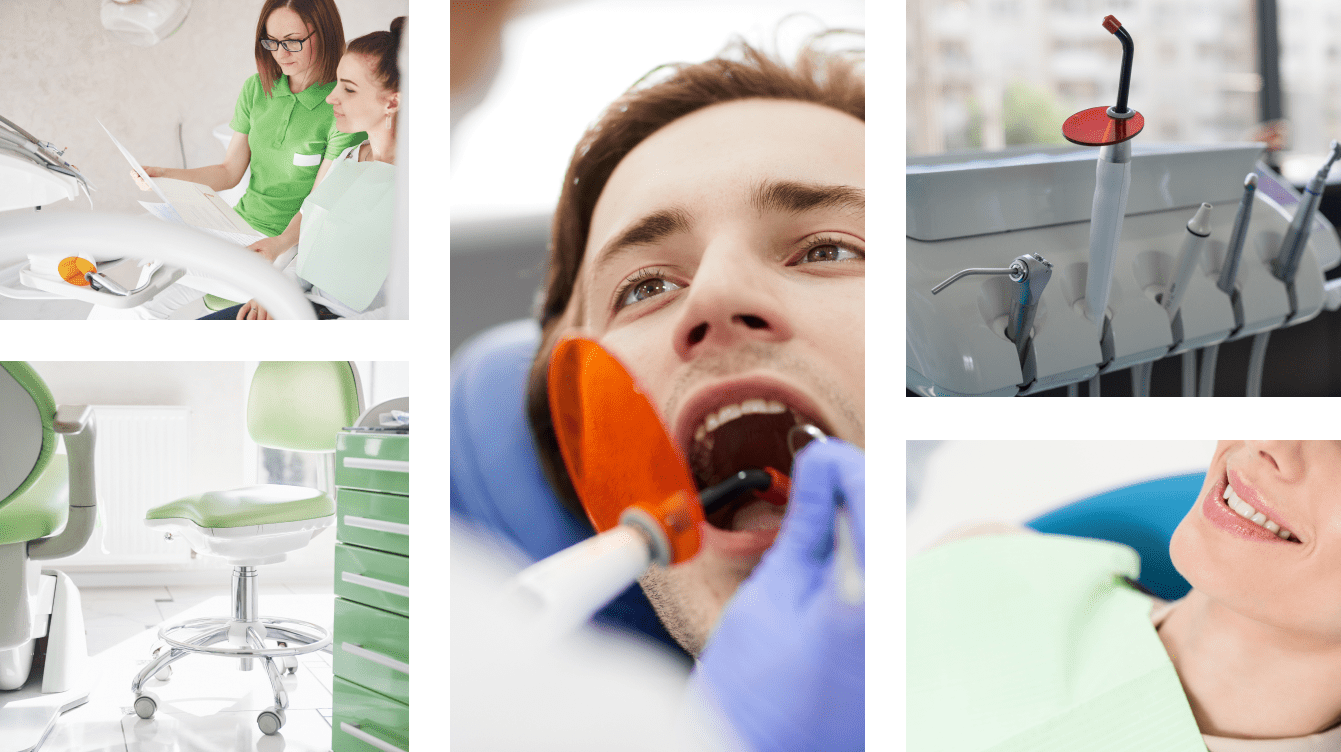
Why a dental exam ?
Establish a complete dental examination
A healthy mouth is an important part of good health. Performed by the dentist , the dental examination helps prevent and detect oral problems at an early stage. There are 2 types of exam:
- The full examination: usually carried out during your first visit. We recommend doing this every 3 years.
- Recall examination: recommended every 6 months but depending on your condition, the dentist may suggest another frequency.
The dental exam is often done during the cleaning of your teeth by the dental hygienist .

Diagnostic
Intra and extra oral photography
Intra and extra oral photos are also taken during your examination in order to check in detail all aspects of the teeth, gums and face. At Anjou Center Dentaire d'Urgence , photos are an essential tool for several reasons :
- They are essential to complete the diagnosis and to establish personalized treatment options.
- They are an effective means of communication between the members of our team in order to serve you better.
- They constitute an invaluable support to promote communication between the professional and the patient.
Oral problems
In addition to your medical history including your general state of health and the special precautions to be taken, medication, allergies and lifestyle habits (diet, tobacco, alcohol), the dentist performs an oral examination to check:
- The condition of your teeth and gums
- The presence of cavities
- The presence of infections
- The state of your language
- Soft tissue under the tongue
- The palate and the inside of the cheeks
- The condition of your lips
- The condition of the lymph nodes
- Adequate presence of saliva
- The presence of bad breath
- The presence of infections
- Occlusion (relationships between teeth, jaws closed)
- Your ability to chew, open and close your jaw
- he condition of the restorations (amalgam, composite, crown, etc.)
- The condition of dental prostheses
- The condition of dental implants
Clean teeth
Professional dental cleaning
Professional cleaning done by the hygienist softens and cleans the surfaces of teeth and fillings, removing tartar , plaque and stains. This helps reduce the risk of gum disease while restoring shine to your teeth. Despite impeccable oral hygiene, tartar still accumulates on the teeth and inside the gums, which explains the need for cleaning at your dentist every 6 months.
What is dental plaque?
Dental plaque is a soft deposit, invisible to the naked eye, which is deposited on the surfaces of the teeth by its very sticky component. It is essentially made up of a set of bacteria as well as sweet and acidic foods. It develops in all individuals and is formed continuously. In fact, 24 hours is enough to make the bacteria in dental plaque very virulent. If it is not removed, dental plaque can cause several consequences on oral health.